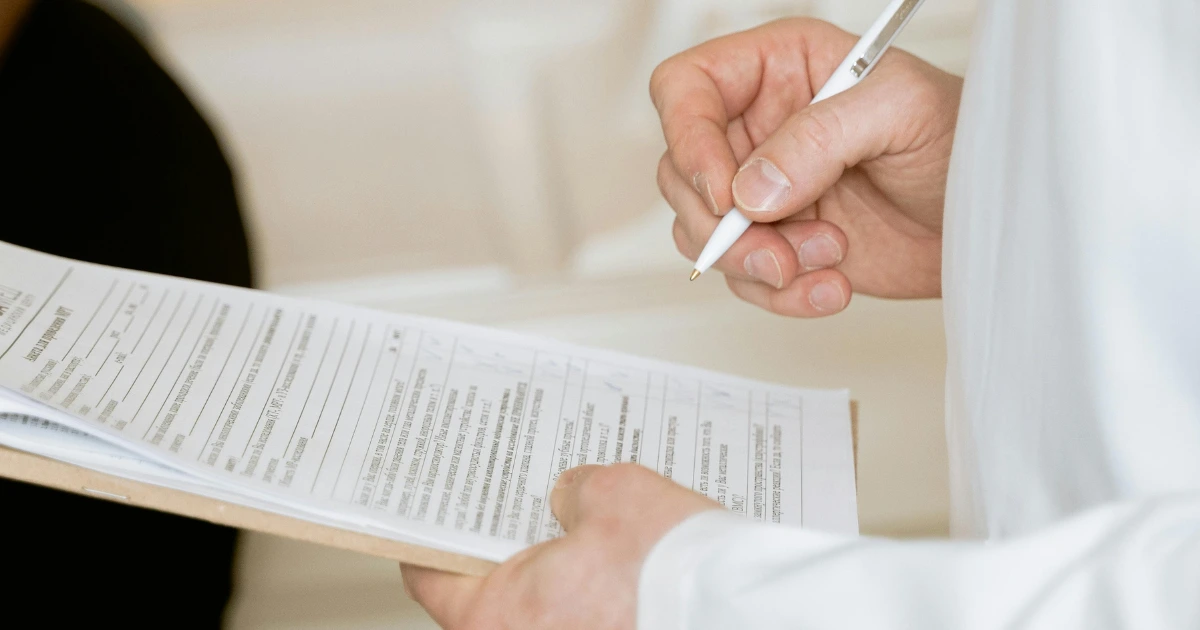is the gi map test covered by insurance ? Shocking informations
Table of Contents
Understanding your digestive health can be tough, especially with complex medical tests and insurance. The GI MAP test gives a detailed look at your gut, helping find health problems. If you’re curious about the gi map test covered by insurance, you’re not alone in looking for answers.
Digestive health is key to feeling good overall. The gi map test covered by insurance is a big chance for patients with gut issues. It helps doctors find and treat problems that might be affecting your health.
Key Takeaways
- GI MAP test provides detailed insights into digestive health
- Insurance coverage varies by provider and medical necessity
- Understanding test requirements can help maximize potential coverage
- Comprehensive diagnostic information supports targeted treatment
- Consultation with healthcare providers is essential for insurance navigation
- Medical documentation plays a critical role in coverage approval
Understanding the GI MAP Test and Its Medical Importance
The GI MAP test is a top-notch diagnostic tool that gives deep insights into your digestive health. Knowing if a gi map test is covered by insurance is key for those wanting a detailed look at their gut.
Today’s medical tests have changed how we check our digestive health. The GI MAP test is a new way to look at your gut microbiome with great detail.
What the GI MAP Test Measures
This special test checks many parts of your digestive system, including:
- Bacterial populations
- Parasitic infections
- Opportunistic pathogens
- Inflammatory markers
- Immune response indicators
Medical Conditions Diagnosed Through GI MAP Testing
| Condition Category | Potential Diagnoses |
|---|---|
| Digestive Disorders | Crohn’s Disease, Ulcerative Colitis |
| Infectious Conditions | H. pylori, Bacterial Overgrowth |
| Inflammatory Markers | Immune System Dysregulation |
Benefits of Early Detection and Treatment
Finding digestive problems early with the GI MAP test can greatly help patients. Proactive healthcare strategies lead to better treatments before problems get worse.
When looking into gi map test covered by insurance, patients get a powerful tool for understanding their digestive health. This knowledge helps them make better choices about their health care.
How Insurance Companies View GI MAP Test Coverage
Figuring out if insurance covers the GI MAP test can be tricky. Each insurance company has its own rules. They look at many things before deciding if they’ll pay for the test. Your insurance plan is key in knowing if you’ll get help with the test’s cost.
Insurance companies check a few main things:
- How useful the test is for medical needs
- If the test is cost-effective
- Scientific proof that the test works well
- If the FDA has approved the test method
Some insurers see the GI MAP test as a top-notch tool for checking gut health. Precision medicine and personalized healthcare are pushing for more coverage of such tests.
“The diagnostic potential of GI MAP testing represents a significant advancement in understanding gut health,” says Dr. Rebecca Martinez, a leading gastroenterology specialist.
Your doctor’s paperwork is very important for getting insurance to pay. They need to show that the GI MAP test is needed for your health condition.
Insurance plans vary a lot. Some might pay for the whole test, others might ask you to pay part of it, or they might not cover it at all. It’s smart to check your insurance plan and talk to your doctor about any money worries.
Insurance Requirements for GI MAP Test Coverage
Getting insurance to cover a GI MAP test can be tricky. Knowing what’s needed can help patients get their tests covered. Insurance companies have rules that must be followed for test approval.
To get insurance to cover the test, patients and doctors must take certain steps. These steps are very important.
Medical Necessity Documentation
Your doctor is key in getting the test covered. They need to show why the test is needed. This includes:
- Detailed patient medical history
- Current symptoms and their duration
- Previous diagnostic test results
- Potential underlying health conditions
Prior Authorization Process
The prior authorization process is a big step. Your doctor will send a request to your insurance company. They need to include:
- Comprehensive medical justification
- Specific diagnostic codes
- Recommended treatment plan
- Expected patient outcomes
Diagnostic Codes and Coverage Criteria
Insurance companies use specific codes to decide if they’ll cover the test. Accurate coding is essential for successful insurance approval. Your doctor must use the right ICD-10 codes to link the test to possible health issues.
Patients should work with their doctors to make sure all paperwork meets insurance needs. This increases the chance of getting the test covered.
gi map test covered by insurance: Understanding Your Policy
Figuring out insurance for a GI MAP test can be tough. Your insurance policy has key details about test coverage that can save you money. It’s important to carefully look over your policy documents to understand what’s covered.
To find out what’s covered, follow these steps:
- Find your current insurance policy documents
- Look at the part about diagnostic testing and lab services
- See if it mentions microbiome or stool testing
- Check for any exclusions or limits
When checking your insurance for the GI MAP test, focus on the details. Not all insurance plans cover tests the same way. Some might need you to get approval before the test, while others might ask for certain codes or papers from your doctor.
Call your insurance company to get the best info. Have a list of questions ready, like:
- Is the GI MAP test covered?
- How much of the test cost will be covered?
- Are there any costs you have to pay yourself?
- Do you need a doctor’s referral?
Keep in mind, insurance plans are different. What works for one person might not work for another. By understanding your policy well, you can avoid surprise costs and get the testing you need.
Out-of-Pocket Costs and Payment Options
Knowing how much a GI MAP test costs can help you deal with insurance and expenses. The price of this test can change a lot. It’s important to look at different ways to pay.
When looking at a gi map test covered by insurance, consider these financial points:
Typical Costs Without Insurance
A GI MAP test can cost between $300 to $700 without insurance. The price changes based on:
- The lab doing the test
- The test’s complexity
- Where you live
- Other tests you might need
Deductibles and Copayments
If your gi map test is covered by insurance, you’ll face:
- Deductible amounts before insurance starts
- Copayment percentages of 10-30%
- Out-of-pocket maximums
Payment Plans and Financial Assistance
Healthcare providers offer ways to make test costs easier:
- Monthly payment plans
- Sliding scale fees based on income
- Discounts for cash payments
- Financial help for eligible patients
Always talk to your healthcare provider and insurance to find the best way to pay for your GI MAP test.
Alternative Coverage Options for GI MAP Testing
If your insurance doesn’t cover the gi map test, don’t worry. There are other ways to pay for it. Learning about these options can make getting tested easier and cheaper.
Health savings accounts (HSAs) and flexible spending accounts (FSAs) are great for saving on medical costs. You can put aside money before taxes for health expenses, like gi map tests.
- Health Savings Accounts (HSAs): Ideal for individuals with high-deductible health plans
- Flexible Spending Accounts (FSAs): Employer-sponsored accounts with annual contribution limits
- Health Reimbursement Arrangements (HRAs): Employer-funded accounts for medical expenses
Some people look into special cost-sharing programs instead of regular insurance. These programs can help pay for tests like the GI MAP test.
| Coverage Option | Key Benefits | Potential Limitations |
|---|---|---|
| HSA | Tax-free contributions | Annual contribution limits |
| FSA | Pre-tax healthcare spending | Use-it-or-lose-it policy |
| HRA | Employer-funded | Employer determines coverage |
Talking to a financial advisor or healthcare billing expert can help. They can guide you through these options and find the best one for you.
Steps to Secure Insurance Coverage for Your GI MAP Test
Getting insurance to cover a GI MAP test can be tough. But, being proactive can really help. It can make it easier to get this important test covered.
To get insurance to cover your test, you need to prepare well and document everything. Knowing the process and working with your healthcare team can help a lot. This way, you have a better chance of getting your test covered.
Working with Healthcare Providers
Your healthcare provider is key in getting insurance coverage. They can help you by:
- Writing detailed notes on why you need the test
- Using the right diagnostic codes
- Submitting strong medical justification
- Explaining why the GI MAP test is important
Insurance Appeal Process
If insurance first says no, you can appeal. The appeal process includes:
- Looking over the denial letter carefully
- Getting more medical evidence
- Writing a strong appeal letter
- Adding supporting documents
Documentation Requirements
Getting insurance coverage needs careful documentation. Make sure you have the following important documents:
| Document Type | Purpose |
|---|---|
| Physician’s Detailed Letter | Explain why you need the test |
| Comprehensive Medical Records | Show your health conditions |
| Specific Diagnostic Codes | Give the exact billing info |
“Persistence and thorough documentation are your best allies in securing insurance coverage for medical tests.” – Healthcare Insurance Specialist
Remember, each insurance company has its own rules. Be clear, stay organized, and always fight for your health care.
Conclusion
Understanding the details of gi map test covered by insurance can be tough. But, with the right steps, you can handle your testing costs. Your health is very important. Knowing how to get insurance for the GI MAP test is key to keeping your digestive health in check.
Success comes from being prepared and talking clearly. Work with your doctor to show why you need the test. Make sure you have the right codes and a strong case for insurance. Look into appeals and other ways to lower costs.
Every insurance plan is different. What works for one person might not work for you. Take time to understand your plan, ask questions, and fight for your health needs. Knowing your coverage can save you money and ensure you get the care you need.
Being informed and proactive can help you deal with insurance for tests like the GI MAP. Your health is worth the effort. With the right steps, you can get the medical help you need without spending too much.
FAQ
What is a GI MAP test?
The GI MAP test is a detailed stool test. It checks your gut microbiome for pathogens, bacteria, parasites, and inflammation. It helps understand your digestive health and any underlying issues.
Is the GI MAP test covered by insurance?
Insurance coverage for the GI MAP test varies. Some plans might cover it if a doctor prescribes it and provides the right documentation.
How much does a GI MAP test cost without insurance?
Without insurance, the GI MAP test costs between $300 and $600. This price depends on the lab and the test’s depth. Always check with your provider for the exact cost.
What medical conditions can the GI MAP test diagnose?
The test can diagnose several conditions. These include small intestinal bacterial overgrowth, parasitic infections, and inflammatory bowel diseases. It also checks for Helicobacter pylori and overall gut health.
What documentation is needed for insurance coverage?
For insurance, you need a detailed letter from your doctor. This letter should include specific codes and your medical history. It must explain why the test is necessary for your health.
Can I use a Health Savings Account (HSA) or Flexible Spending Account (FSA) for the GI MAP test?
Yes, you can use HSA or FSA funds for the test. It’s considered a qualified medical expense. This can help cover costs if insurance doesn’t fully cover it.
How long does it take to get GI MAP test results?
Results usually take 7-10 business days after the lab gets your sample. Your doctor will then discuss the report with you, including any necessary treatments.
What should I do if my insurance denies coverage for the GI MAP test?
If insurance denies coverage, appeal with medical documentation. Work with your doctor to build a strong case for the test’s necessity. Look into payment plans or financial help if needed.
( gi map test covered by insurance , gi map test covered by insurance , gi map test covered by insurance , gi map test covered by insurance , gi map test covered by insurance , gi map test covered by insurance , gi map test covered by insurance , gi map test covered by insurance , gi map test covered by insurance , gi map test covered by insurance , gi map test covered by insurance , gi map test covered by insurance , gi map test covered by insurance , gi map test covered by insurance , gi map test covered by insurance )







